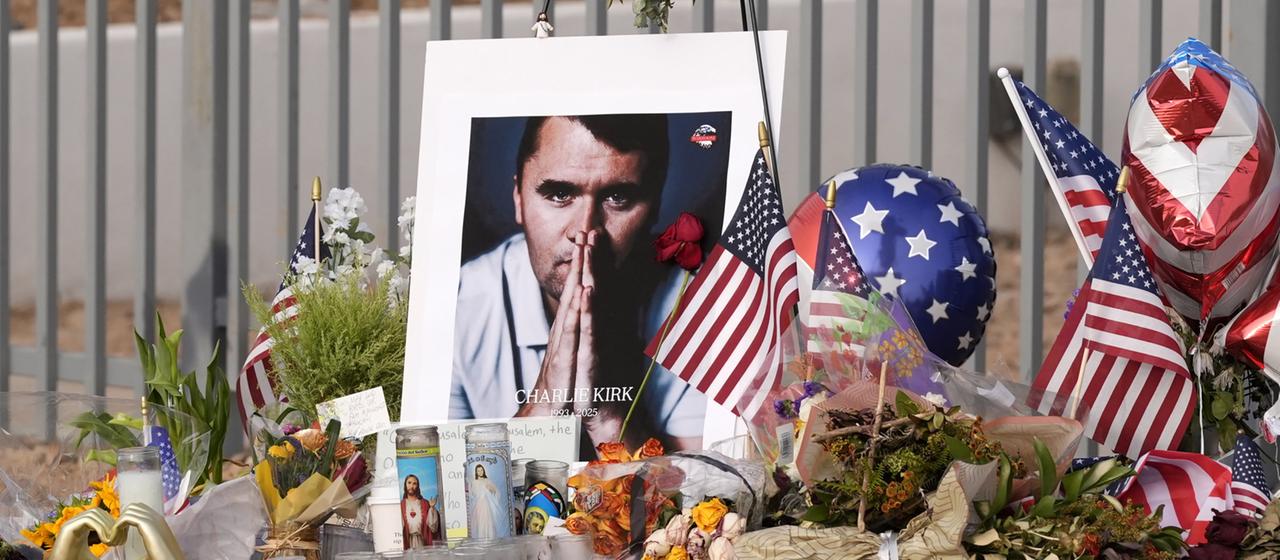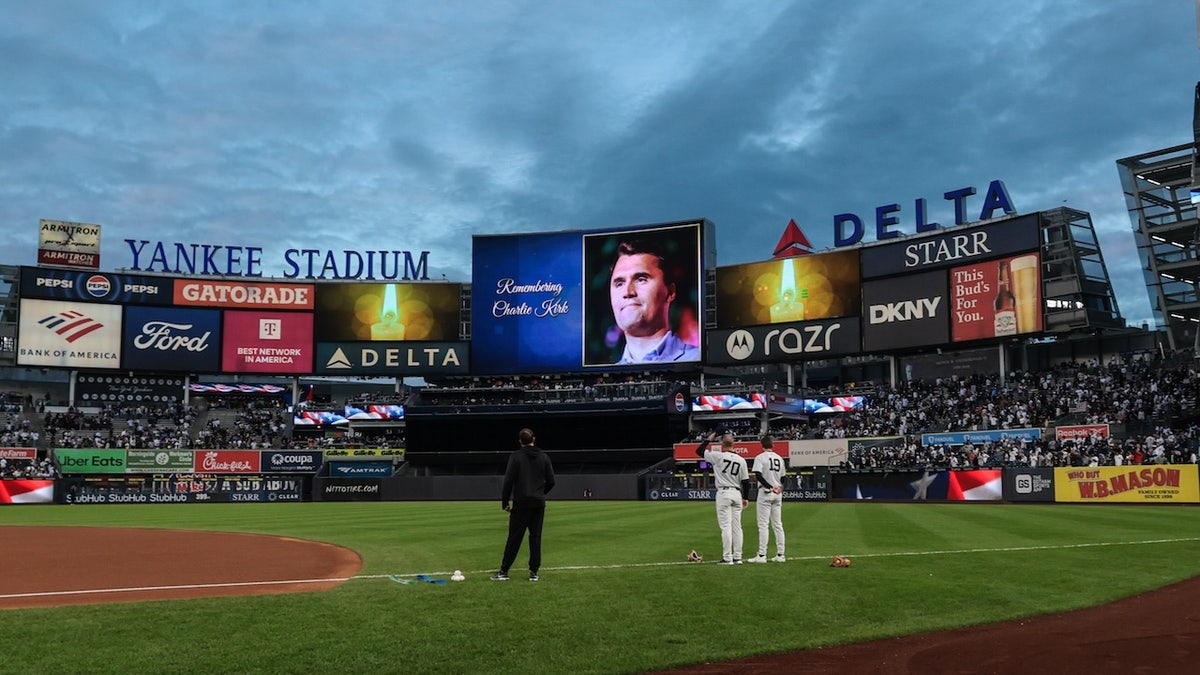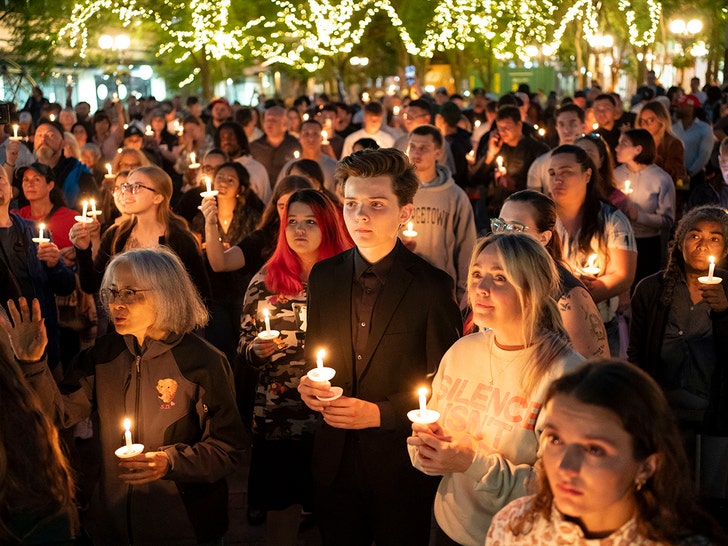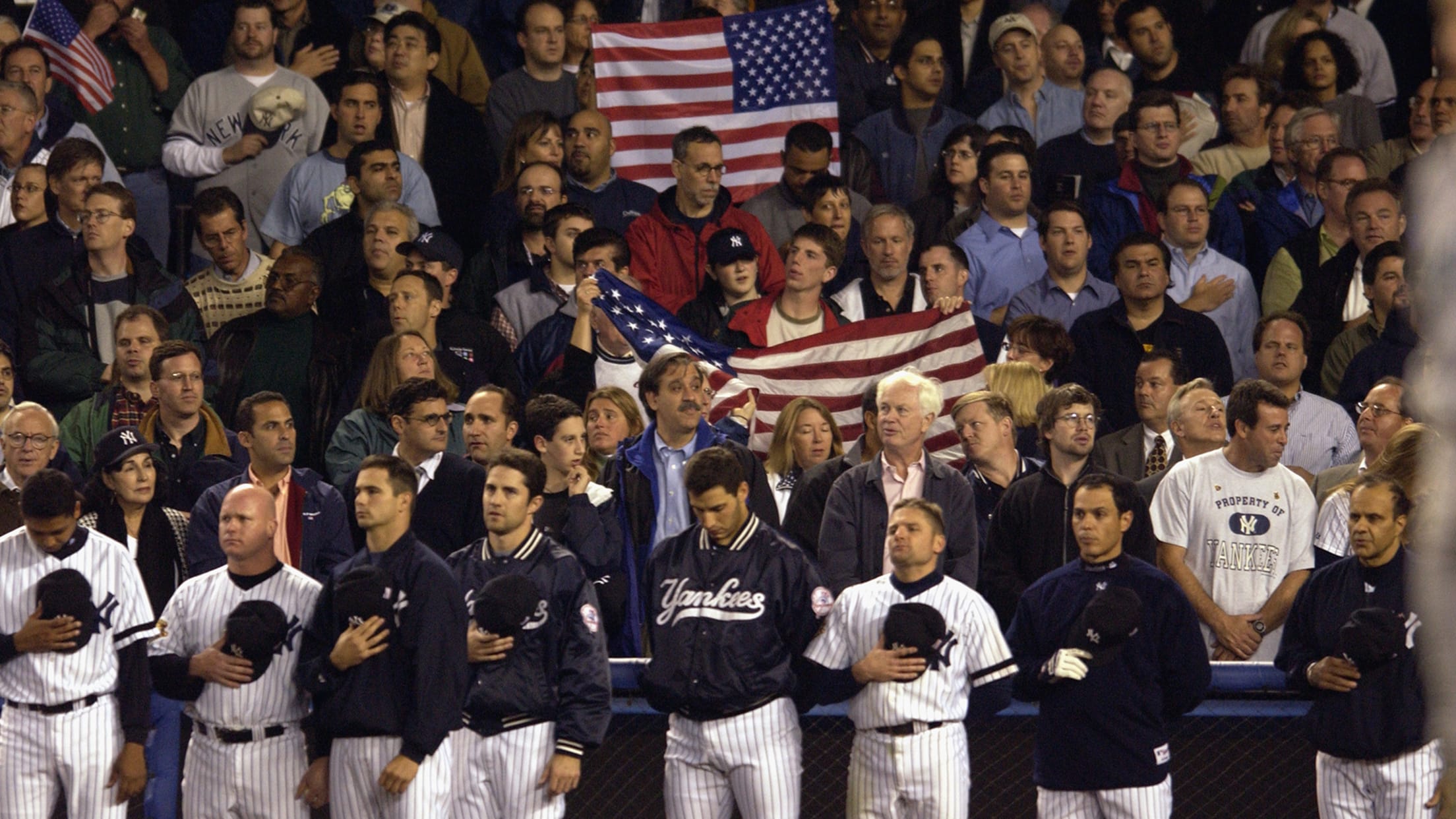BREAKING: Chicago school teacher Lucy Martinez, who appeared in the viral video mocking the Charl!e K!rk tragedy, has been fired — and students reportedly captured her emotional reaction moments after the news broke.
BREAKING: Chicago school teacher Lucy Martinez, who appeared in the viral video mocking the Charl!e K!rk tragedy, has been fired — and students reportedly captured her emotional reaction moments after the news broke.
It started as a short clip shared among students at a Chicago high school — a brief, shaky video that was never meant to escape the walls of a classroom. But within 48 hours, the world had seen it. Millions watched as Lucy Martinez, a 32-year-old teacher known for her humor and energy in the classroom, appeared to laugh while mentioning the recent tragedy involving conservative commentator Charlie Kirk.
What happened next would change her life forever.
The Video That Shook a School District
The viral clip lasted less than twenty seconds. It showed Martinez in front of a whiteboard, jokingly reacting to a discussion about current events. A student’s phone camera captured her laughing and making a remark that many online interpreted as mocking the tragic news surrounding Charlie Kirk.
At first, only a few students saw it on a private group chat. Then, it spread — first to Reddit, then to X (formerly Twitter), and finally across major social media platforms.
By Monday morning, the video had reached over two million views. Hashtags like #LucyMartinez, #ChicagoTeacher, and #CharlieKirkVideo began trending nationwide.
Parents called the school demanding answers. Commentators on both sides of the political divide weighed in. Some defended her as a victim of “cancel culture.” Others said the video showed an unacceptable lack of empathy from someone tasked with shaping young minds.
Within hours, the school district launched an internal review.
A Swift Investigation and a Sudden Decision
On Wednesday morning, a notice was posted at the district office: Lucy Martinez has been placed on administrative leave pending investigation.
But the decision didn’t stay “pending” for long. By Thursday afternoon, an email circulated internally confirmed that she had been terminated effective immediately.
The reason cited: “Conduct unbecoming of an educator and violation of professional standards.”
A spokesperson for the district released a brief statement:
“We take our responsibility to uphold integrity and respect within the educational environment very seriously. While we do not comment on personnel matters, we can confirm that the individual in question is no longer employed with the district.”
No further explanation was offered.
Behind the scenes, however, staff members described a tense, emotional atmosphere at the school.
One faculty member, speaking on condition of anonymity, said:
“It’s been chaos since the video came out. Some teachers deleted their social media accounts overnight. Others were worried they could be recorded next. Everyone’s walking on eggshells.”
Students Capture the Aftermath
As news of her firing spread through the hallways, a group of students reportedly captured footage of Martinez’s emotional reaction in the moments after she was informed.
According to one student, who shared details under the name @WindyCityWitness on X, “She looked completely shocked. She kept saying, ‘I didn’t mean it that way.’ Some kids were crying — others were whispering that she’d never come back.”
The clip has not been publicly released, but multiple witnesses confirm it exists. Several online pages claimed to have seen portions of it before it was taken down for privacy reasons.
One description reads:
“You can see the moment she realizes her career is over. It’s heartbreaking — not because of what she said, but because you can feel the regret.”
A Polarizing Public Reaction
The internet, as always, split into two camps.
One side argued that Martinez had every right to express herself, even if her tone was misjudged. “People make mistakes,” wrote one user on Reddit. “She laughed nervously — that doesn’t mean she celebrated tragedy.”
Others saw it differently. “Teachers have a moral duty to be examples,” tweeted a parent. “If she can mock something so serious in front of kids, what else does she say when no one’s recording?”
Within a few days, the debate turned political. Some commentators linked the incident to a wider culture war in American education — a struggle over what’s appropriate in classrooms and who decides where the boundaries lie.
Cable talk shows began airing segments titled “Teachers Gone Too Far?” and “When Personal Opinions Cross the Line.”
Suddenly, Lucy Martinez wasn’t just a name. She had become a symbol — for some, of accountability; for others, of public shaming gone too far.

Who Is Lucy Martinez?
Before the viral moment, Lucy Martinez had been known locally as a dedicated teacher who often stayed after hours to help struggling students. She taught English literature at Lincoln Park High School for nearly six years and was popular among her students for her lively approach and humor.
“She always made class fun,” said former student Jasmine Li. “She used to dress up as Shakespeare characters, or make us act out scenes. She cared about us.”
Her coworkers describe her as passionate but outspoken. “She had opinions and wasn’t afraid to share them,” said one fellow teacher. “That’s part of what made her interesting — but it’s also what got her into trouble.”
The Role of Social Media in Modern Accountability
This case reignited the conversation about how much power social media wields in shaping — and sometimes destroying — lives overnight.
In the past, a classroom joke might have faded into memory. Today, a 15-second video can determine a person’s career.
Experts say this incident reflects a growing tension between personal expression and public professionalism.
Dr. Elaine Porter, a sociologist at Northwestern University, commented:
“We’re living in an age where perception often outweighs intention. Once something goes viral, context disappears. What matters is the reaction — not the reason.”
The reaction, in Martinez’s case, was swift and unforgiving.

A Private Apology That Never Reached the Public
Sources close to Martinez say she wrote a personal letter of apology the night before her dismissal.
In it, she reportedly expressed “deep regret for the misunderstanding” and emphasized that her comments were “taken out of context during a spontaneous discussion.”
The letter was sent to the district office but never released publicly. Some believe it might have softened the backlash had it been shared.
“She’s not a bad person,” said one of her colleagues. “She just made a mistake in a moment that happened to be recorded. It’s scary how fast things spiral.”
Inside the Final Moments at School
According to accounts from several students, Martinez returned briefly to collect her belongings on Friday morning. Security escorted her to her classroom, where she quietly packed up books, posters, and personal items.
“She looked like she was holding back tears,” one student said. “She smiled at us, but her eyes were red.”
Others described the atmosphere as “strangely quiet.” The once vibrant teacher who filled the halls with laughter was now walking out under a cloud of silence.
“She hugged one of the kids before leaving,” another student recalled. “Then she just walked away. No one said anything for a while after that.”

What Happens Next
While the district has closed the case, public curiosity hasn’t faded. Supporters have launched online petitions calling for her reinstatement, claiming the firing was an overreaction.
Opponents argue that letting her return would send “the wrong message” to students about accountability.
As of this week, the petition gathered nearly 10,000 signatures. The district has not responded to requests for reconsideration.
Meanwhile, Martinez has deactivated her social media accounts and reportedly left Chicago to stay with family out of state.
Lessons from a Viral Moment
The Lucy Martinez story isn’t just about one teacher or one video. It’s a reflection of how fragile reputations have become in the digital age.
In a world where every phone is a camera and every moment can be shared, the line between private and public life is thinner than ever.
Experts warn that similar incidents will continue unless schools — and society — create clearer boundaries about what’s acceptable, and what isn’t.
“It’s not about censorship,” said Dr. Porter. “It’s about awareness. Teachers, students, everyone — we’re all living in a constant state of exposure.”
A Divided America Watches
Across the nation, opinions remain divided. Talk radio hosts debate whether this represents justice or overreach. Online threads stretch into thousands of comments.
Some see Lucy as a victim of a hypersensitive culture that punishes even the smallest mistake. Others view her as an example of how educators must be held to the highest moral standard.
One viral post summed it up:
“She’s not evil — just human. But in today’s world, being human isn’t always enough.”

The Unseen Footage
Though the public has not viewed the alleged video of her reaction, whispers about its contents persist. Some claim it shows her breaking down in tears, apologizing to students. Others suggest it includes a heartfelt message about learning from mistakes.
What’s certain is that it has become the subject of intense online speculation. Several users have tried to upload versions of it, only for them to be swiftly removed for privacy violations.
For now, the footage remains unseen — perhaps the final piece of a story already too painful to watch unfold any further.
Reputation in the Digital Age
Lucy Martinez’s experience mirrors a troubling trend — one where outrage moves faster than understanding, and judgment outpaces truth.
The internet has made everyone a public figure, even those who never asked to be. One wrong word, one misplaced laugh, one misunderstood expression — and suddenly, you’re trending.
For educators especially, the stakes are higher. They are expected to embody patience, empathy, and restraint — qualities that can be shattered in seconds if a camera is rolling.
“Teachers are humans,” says education consultant Mark Riley. “But in the public eye, they’re expected to be saints.”
The Final Reflection
In the weeks since her dismissal, Martinez has not spoken publicly. Friends say she’s focusing on family, therapy, and rebuilding her life away from the spotlight.
Meanwhile, her former students continue to discuss the incident — not in anger, but in reflection.
“She taught us that words have power,” one senior said. “Maybe this whole thing proved it more than she ever imagined.”
A Nation Still Divided, A Lesson Still Unlearned
The Lucy Martinez story serves as a mirror — reflecting a society torn between accountability and compassion.
Was justice served, or was it another case of public punishment for private imperfection?
The truth may never be fully known. But as one headline summed it up perfectly:
“A 15-second video ended her career — and reminded everyone that in the age of viral judgment, no one is truly off-camera.”
Final Thought
In the end, Lucy Martinez’s fall from grace is not just a cautionary tale about a teacher. It’s about all of us — how we watch, how we judge, and how quickly we forget that behind every viral clip, there’s a real person facing real consequences.
As the dust settles, one question lingers:
How many more lives will be rewritten by moments that were never meant to be seen?
"Fans thought it would be just another baseball game" — but the moment of silence before the very first pitch left Yankee Stadium frozen in disbelief… The unexpected name honored stunned the entire crowd!

"Fans thought it would be just another baseball game" — but the moment of silence before the very first pitch left Yankee Stadium frozen in disbelief… The unexpected name honored stunned the entire crowd!
The night was supposed to be ordinary. Just another September evening at Yankee Stadium, where tens of thousands of fans filed into the Bronx expecting nothing more than baseball, beer, and the comforting rhythm of America’s pastime. The Yankees were set to take the field against a divisional rival, and excitement buzzed through the stands like static electricity. Children clutched foam fingers, fathers balanced trays of hot dogs and sodas, and older fans swapped stories about Babe Ruth, Derek Jeter, and Aaron Judge.
But then, as the organ music faded and the announcer’s voice boomed over the loudspeakers, everything changed.
“Ladies and gentlemen,” came the solemn words, “we ask you to please rise, remove your caps, and join us in a moment of silence.”
The request itself wasn’t unusual. Moments of silence are a tradition in sports arenas, typically reserved for the passing of beloved players, coaches, or national tragedies. Fans rose obediently, their voices trailing off, their movements stilling. A hush fell across the stadium, the kind of silence that presses on the ears until you realize how loud absence can be.
Then came the shock.
“This moment of silence,” the announcer continued, “is dedicated to Charlie Kirk.”
The name rippled through the crowd like an electric current. Some gasped. Some frowned in confusion. Others simply stood frozen, unsure of what they had just heard. Charlie Kirk? Not a Yankee legend. Not a New York hero. Not even a baseball figure at all. Instead, a deeply polarizing political activist, a man whose name has ignited fierce debates across cable news and college campuses alike.
Why him? Why here? Why now?
And so began one of the strangest and most talked-about moments in Yankee Stadium history — a single gesture of remembrance that has since spiraled into controversy, speculation, and questions no one seems ready to answer.

The Shockwave in the Stands
For those inside the stadium, the moment felt surreal.
“I thought they said the wrong name,” recalled 42-year-old season ticket holder Anthony Marquez. “Like, maybe I misheard it. But then people around me were whispering, ‘Did he just say Charlie Kirk?’ And I knew I wasn’t crazy.”
On the Jumbotron, no image appeared. No dates of birth and death. Just a black screen with white text: In remembrance of Charlie Kirk. The simplicity only deepened the unease.
Some fans bowed their heads out of habit, choosing respect over reaction. Others refused. A group in Section 214 reportedly booed, their voices piercing the silence. On the opposite side of the stadium, pockets of fans clapped quietly, as though they believed the tribute was deserved.
“You could feel the division in the air,” said 27-year-old fan Melissa Ortiz. “Half the stadium wanted to honor the silence. The other half wanted to know who approved this in the first place.”
When the moment ended, the crowd released a collective breath — but the tension lingered. The first pitch was thrown, the game began, but few were paying attention to baseball. Instead, cell phones lit up the stands, tweets and texts firing off into the digital ether. Within minutes, “Yankee Stadium” and “Charlie Kirk” were trending nationwide.

Media Firestorm
By the time the second inning rolled around, sports networks had already cut into coverage. ESPN anchors replayed the scene with hushed voices, clearly unsettled themselves. CNN and Fox News both broke into regular programming, though their angles couldn’t have been more different.
On CNN, commentators questioned whether the tribute was appropriate in a sports setting. “This isn’t about baseball,” one pundit remarked. “This is about injecting politics into a sacred American space.”
Fox News, on the other hand, praised the moment. “For once,” a host declared, “an American institution did the right thing, honoring a man who fought for what he believed in.”
Meanwhile, social media exploded. Hashtags like #YankeeStadiumSilence and #CharlieKirkTribute dominated trending lists. Fans posted shaky cellphone videos of the announcement, their captions ranging from outrage to reverence. Memes flooded Instagram. TikTok users created split-screen reactions. The entire country seemed to be watching the same thirty seconds on repeat, trying to decode its meaning.
Why Charlie Kirk?
That, of course, became the central question. Why did the New York Yankees — a franchise historically careful about its public image — choose to dedicate a moment of silence to Charlie Kirk?
Some reports suggested it was the decision of a single executive with ties to conservative organizations. Others speculated that it came from pressure outside the organization, perhaps from sponsors or political allies.
“It doesn’t add up,” said a former MLB executive who asked to remain anonymous. “The Yankees are a brand first and foremost. They don’t wade into politics unless there’s a calculation. Whoever made this call knew it would be explosive.”
Indeed, the Yankees’ official statement only deepened the mystery. Released hours after the game, it read simply:
“Tonight, we observed a moment of silence out of respect. The organization has no further comment at this time.”
No further comment? For a fanbase hungry for answers, silence wasn’t enough.

The Legacy of a Divisive Figure
To understand the uproar, one must understand Charlie Kirk himself. Founder of a major conservative youth movement, Kirk had built his career on fiery speeches, social media presence, and a relentless push against progressive ideologies. Loved by some, loathed by others, he had become a lightning rod in America’s cultural wars.
In the days leading up to the Yankee Stadium tribute, Kirk’s name had been splashed across headlines following his sudden death under circumstances that remain unclear. The news stunned even those who opposed him politically. Regardless of personal opinion, his passing marked the end of a controversial but undeniably impactful chapter in American politics.
But should that legacy cross into baseball’s hallowed grounds? That’s where the debate now rages.

Theories Take Flight
As with any unexplained event in the digital age, theories quickly multiplied.
One theory posited that the Yankees’ ownership was quietly sending a political signal, aligning themselves with conservative voices. Another suggested it was a last-minute tribute arranged by players or staff who personally admired Kirk.
Then came the more conspiratorial takes. Some online voices claimed the tribute was part of a larger effort to “normalize” political figures within American sports. Others whispered about secret deals, hush-hush phone calls, and backstage meetings that forced the team’s hand.
The most dramatic theory? That the announcement had not been approved at all — that someone had hacked the stadium’s system or slipped the message in without authorization. The Yankees declined to comment on whether this was even possible, but the rumor only added fuel to the fire.
A Cultural Crossroads
What makes this story resonate so strongly is that it sits at the intersection of America’s deepest divides. Sports and politics. Entertainment and ideology. The ballpark — once considered neutral ground — suddenly transformed into a battleground of meaning.
For older fans, the intrusion felt sacrilegious. “Baseball is supposed to be an escape,” one lifelong Yankee supporter grumbled on local radio. “Leave the politics out of it.”
For younger fans, especially those active online, the tribute symbolized something larger. “It’s proof,” one college student tweeted, “that nothing is separate anymore. Not even baseball.”
Beyond the Bronx
The ripple effects didn’t stop at Yankee Stadium. Across the country, other teams and venues faced pressure to take a stand. Should they follow the Yankees’ lead and acknowledge Kirk’s passing? Or should they avoid controversy entirely?
By the following morning, several organizations had already issued statements clarifying they would not be making similar tributes. “We honor those connected to our sport,” read one MLB team’s press release. “We have no plans for broader political acknowledgments.”
Still, whispers persisted that other franchises were at least considering private gestures. And in Washington, D.C., lawmakers on both sides of the aisle seized the moment to either praise or condemn the Yankees’ choice.
The Questions That Remain
In the end, the tribute raised far more questions than it answered.
Who authorized it?
What motivated the decision?
And most importantly — what does it mean for the future of sports in a country already divided by politics?
For now, no one knows. The Yankees remain silent, perhaps hoping the controversy will fade. But the image of a silent Yankee Stadium — tens of thousands of fans holding their breath for Charlie Kirk — will not fade easily. It is etched into the collective memory of baseball fans and political observers alike.
Back to the Field
And yet, the game itself went on. The Yankees won that night, though few remember the score. What they remember is the silence. The pause before the storm. The moment when baseball’s most storied stadium transformed into a stage for something bigger than the game.
As fans filed out into the humid New York night, many were still shaken. “I’ll never forget it,” said one. “Doesn’t matter who you are or what you believe. That kind of silence — that kind of moment — it stays with you.”
And perhaps that’s the point.
Because in a country where everything feels fractured, where every gesture is loaded with meaning, a single name spoken into silence can shake the foundations of even the most ordinary night at the ballpark.








